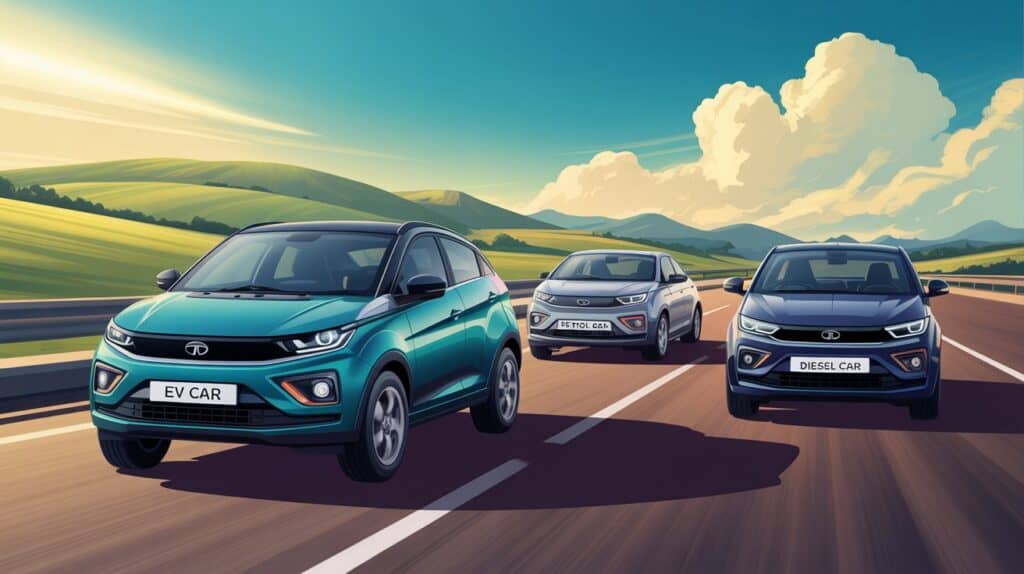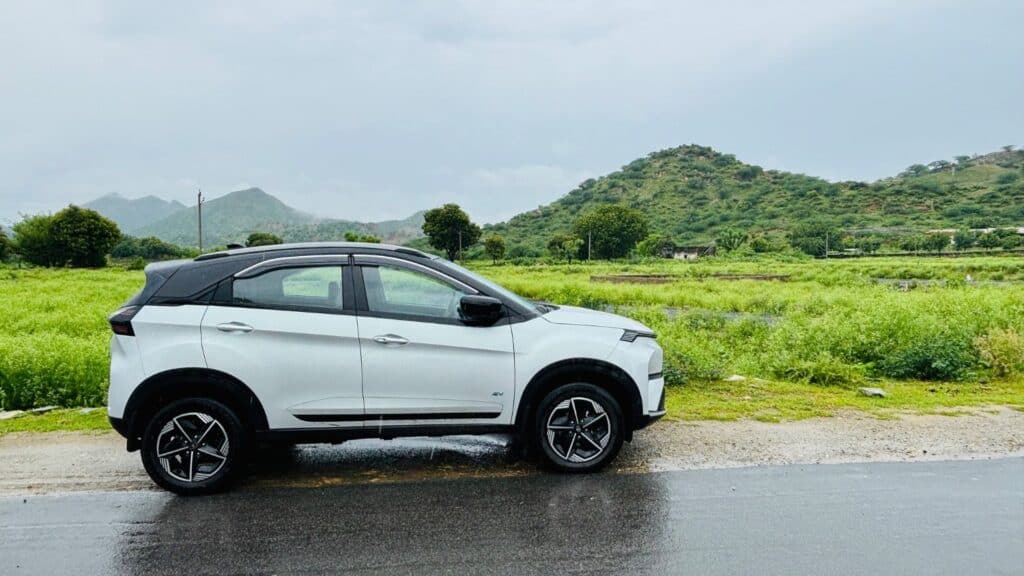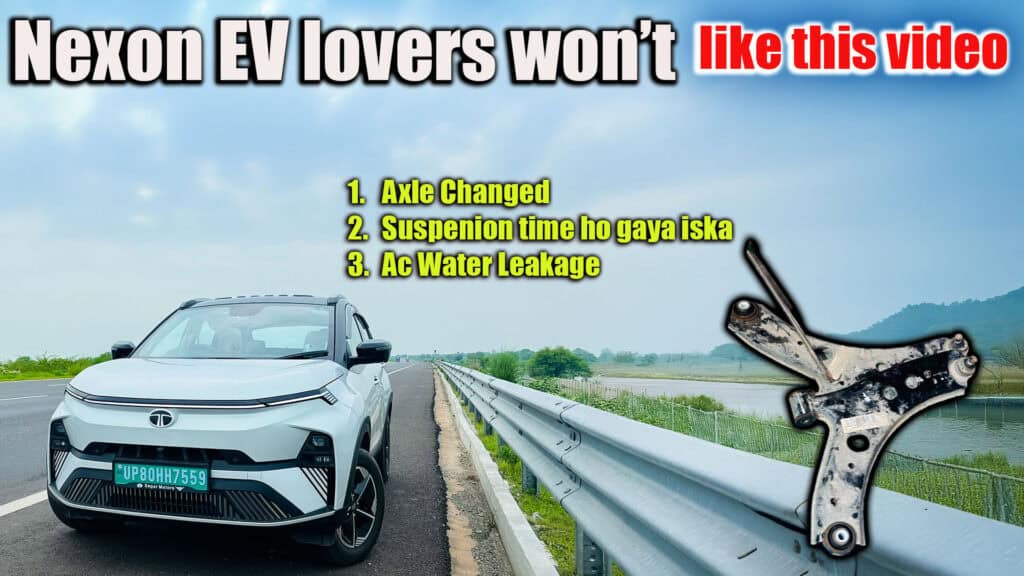Buying a car in 2025 is no longer just about comfort and brand—it’s about running cost, initial price, maintenance, resale value, and future readiness. With multiple options available—petrol, diesel, and electric cars (EVs)—the big question is: Which one should you buy in 2025?
This guide will give you a detailed comparison of all three, including real-world fuel costs, maintenance, and ownership experience.

1. Initial Car Price (On-Road, Approx 2025)
- Petrol Car – The most affordable upfront. Small hatchbacks start around ₹5–8 lakh.
- Diesel Car – Usually ₹1–1.5 lakh more expensive than their petrol counterparts. Starting from ₹8–12 lakh.
- EV Car – Higher upfront cost. Small EVs start around ₹8–12 lakh, while mid-range EVs fall between ₹15–20 lakh.
- Note: Many state governments in India still provide subsidies and benefits on EVs. Please check your state policies before buying, as you may save a significant amount.
👉 Winner – Petrol (cheapest upfront), EV (long-term savings with subsidies).
2. Running Cost (Fuel vs Electricity)
Fuel and electricity prices vary from state to state (*), but here’s the average 2025 calculation:
Petrol Car
- Avg mileage: 15 kmpl
- Petrol price: ₹95/litre (*)
- Cost per km ≈ ₹6.3/km
Diesel Car
- Avg mileage: 20 kmpl
- Diesel price: ₹90/litre (*)
- Cost per km ≈ ₹4.5/km
EV Car
- Avg range: 350 km on a 40–50 kWh battery
- Home charging: ₹8/unit → ~₹1.2/km
- Public fast charging: ₹15–21/unit → ₹2–3/km
👉 Winner – EV (lowest running cost).
3. Maintenance Cost (Annual Average)
- Petrol Car – ₹5,000–8,000
- Diesel Car – ₹6,000–12,000 (higher due to complex engines)
- EV Car – ₹2,500–5,000 (no engine oil, clutch, or gearbox)
👉 Winner – EV
4. Resale Value (2025 Market Trend)
- Petrol Car – Still holds good resale value; demand remains strong.
- Diesel Car – Declining resale due to emission norms and restrictions in big cities.
- EV Car – Resale is uncertain but improving as adoption increases.
👉 Winner – Petrol (safe choice), EV is catching up.
5. Environment & Future Proofing
- Petrol/Diesel Cars – Higher CO₂ emissions, face stricter government policies.
- EV Cars – Zero tailpipe emissions, government incentives, future-ready.
👉 Winner – EV
Final Comparison Table
| Factor | Petrol Car | Diesel Car | EV Car |
|---|---|---|---|
| Initial Price | ✅ Lowest | ❌ Higher | ❌ Highest (subsidies may reduce) |
| Running Cost | ❌ ₹6.3/km | ⚡ ₹4.5/km | ✅ ₹1.2–3/km |
| Maintenance | ⚡ ₹5k–8k | ❌ ₹6k–12k | ✅ ₹2.5k–5k |
| Resale Value | ✅ Stable | ❌ Declining | ⚡ Growing but uncertain |
| Future Ready | ❌ No | ❌ No | ✅ Yes |
| Best For | Low budget, low running | High highway km (short-term) | Long-term, city + highway drivers |
Conclusion – Which One Should You Buy in 2025?
- Petrol Car – Best for buyers with a low budget and less driving (under 600 km/month).
- Diesel Car – Suitable for high highway drivers (1500+ km/month) in the short term, but resale and restrictions make it less future-proof.
- EV Car – Perfect for those who want low running cost, low maintenance, and a future-ready vehicle. Slightly higher upfront cost, but subsidies + running savings balance it out in 3–4 years.
👉 Smart Choice in 2025: EV (if you have charging access). Petrol remains a safe option, but diesel is slowly fading out.


Pingback: Tata Nexon EV 45 kWh – 5th Service Experience at 40,000 km - Harsh Explorer
Great initiative Harsh bhai, all your videos are very informative and perfectly edited. You make us feel that we are actually there with you and enjoying trips. Keep it up
Thank you so much for your kind words! 😊 It really means a lot. Your support keeps me motivated to explore more places and share them with you.
Pingback: LFP vs NMC Batteries – Which is Better for Indian Roads in 2025? - Harsh Explorer Ev Car / Ice Car